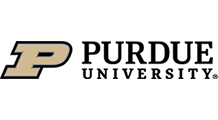The online molecules simulations on this page illustrate in an interactive way how a molecule is constructed and what are its main characteristics. We will learn about molecular structure, types of molecules, the geometry of molecules and what polarity of a molecule consists of and how it acts.
What is a molecule
A molecule is the smallest unit of a substance that still retains the chemical and physical properties of that substance. It is composed of two or more atoms that are bonded together by chemical bonds to form a stable structure.
Structure of a molecule
The structure of a molecule can be linear, branched or three-dimensional, depending on how the atoms are bonded together. The arrangement of atoms in a molecule determines its physical and chemical properties, such as its melting point, boiling point, solubility, reactivity and polarity.
Types of molecules
There are different types of molecules that can be classified according to their chemical composition and function.
Organic molecules
They are mainly composed of carbon, hydrogen and oxygen atoms, although they can also contain other elements such as nitrogen, phosphorus, sulfur and halogens. Examples of organic molecules include carbohydrates, lipids, proteins and nucleic acids.
Inorganic molecules
These are molecules that do not contain carbon and are generally simpler in structure than organic molecules. Examples of inorganic molecules include water (H2O), carbon dioxide (CO2), salts and minerals.
Biomolecules
These are molecules found in living things that perform essential functions in biological processes. Biomolecules include proteins, carbohydrates, lipids and nucleic acids.
Simple molecules
These are molecules composed of only one type of atom. Examples of simple molecules include oxygen (O2), nitrogen (N2) and chlorine (Cl2).
Complex molecules
These are molecules composed of two or more types of atoms. Examples of complex molecules include glucose (C6H12O6), hydrochloric acid (HCl) and ammonia (NH3).
Explore the exciting STEM world with our free, online simulations and accompanying companion courses! With them you'll be able to experience and learn hands-on. Take this opportunity to immerse yourself in virtual experiences while advancing your education - awaken your scientific curiosity and discover all that the STEM world has to offer!
Molecule simulations
- Build
- Geometry I
- Geometry II
- Polarity
3D Molecule Build
Learn with this 3D molecule build simulation. Starting from atoms, see how you can build many molecules. Gather your molecules and see them in 3D!
Geometry of molecules I
Explore the geometry of molecules by building molecules in 3D! Discover how the molecular geometry changes as atoms are added to it.
File
Geometry of molecules II
Explore the geometry of molecules by building 3D molecules! How does the molecular geometry change with different numbers of bonds and electron pairs? Find out by adding single, double or triple bonds and lone pairs to the central atom, then compare the model with real molecules!
File
Molecule polarity
The polarity of a molecule refers to the unequal distribution of electric charges within it, which can influence its chemical and physical interactions. This characteristic depends on the molecular geometry and the differences in electronegativity between its constituent atoms. When is a molecule polar? Change the electronegativity of the atoms in a molecule to see how it affects polarity. See how the molecule behaves in an electric field. Change the bond angle to see how it affects the polarity shape.
File
STEM education equipment
Chemistry courses

Pre-University Chemistry


Big Bang and the Origin of Chemical Elements


Preparing for CLEP Chemistry: Part 1


The Physics of Electronic Polymers (PEP)


Energy to Electrochemistry Final Exam


Electrochemistry




















